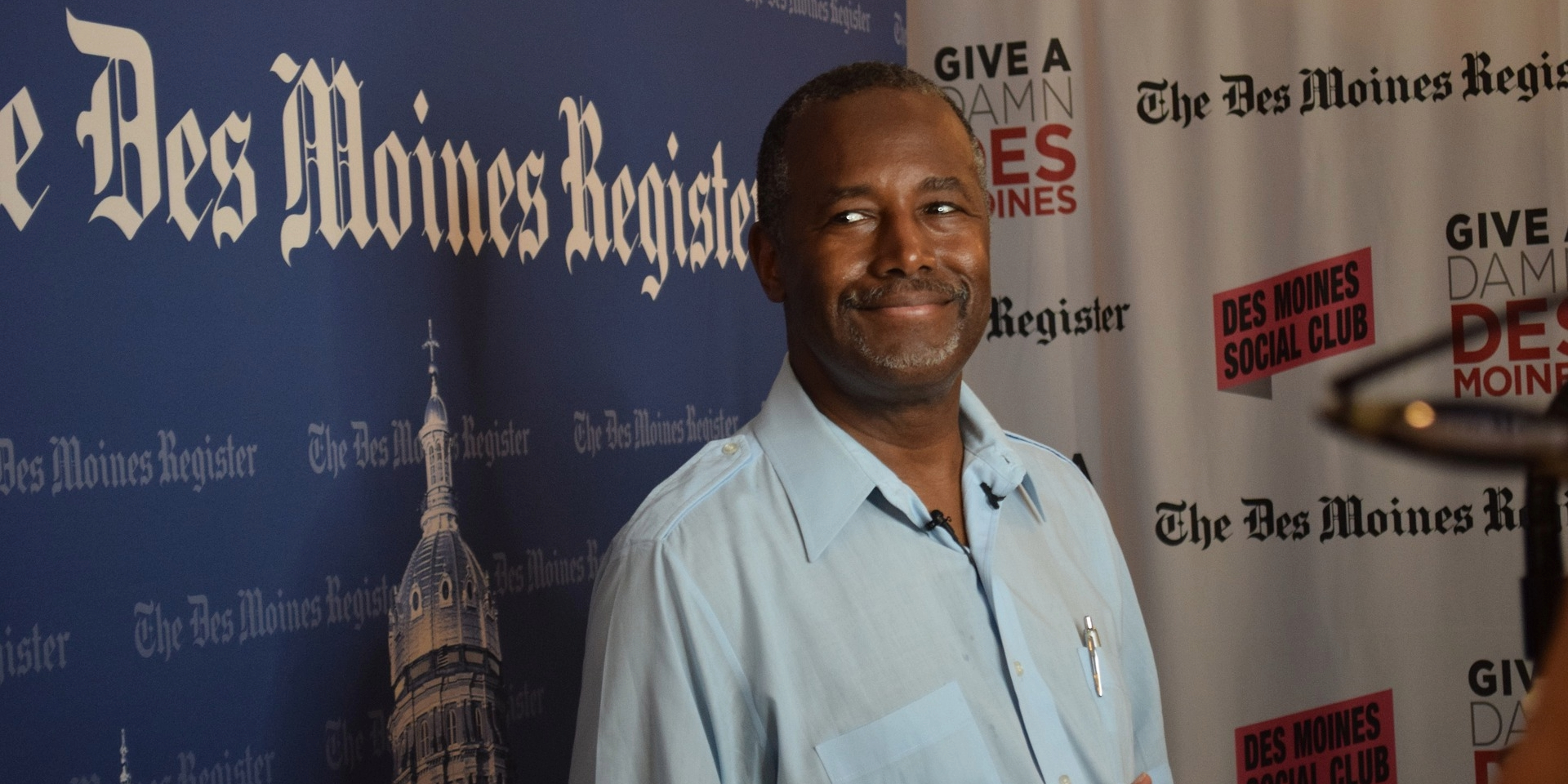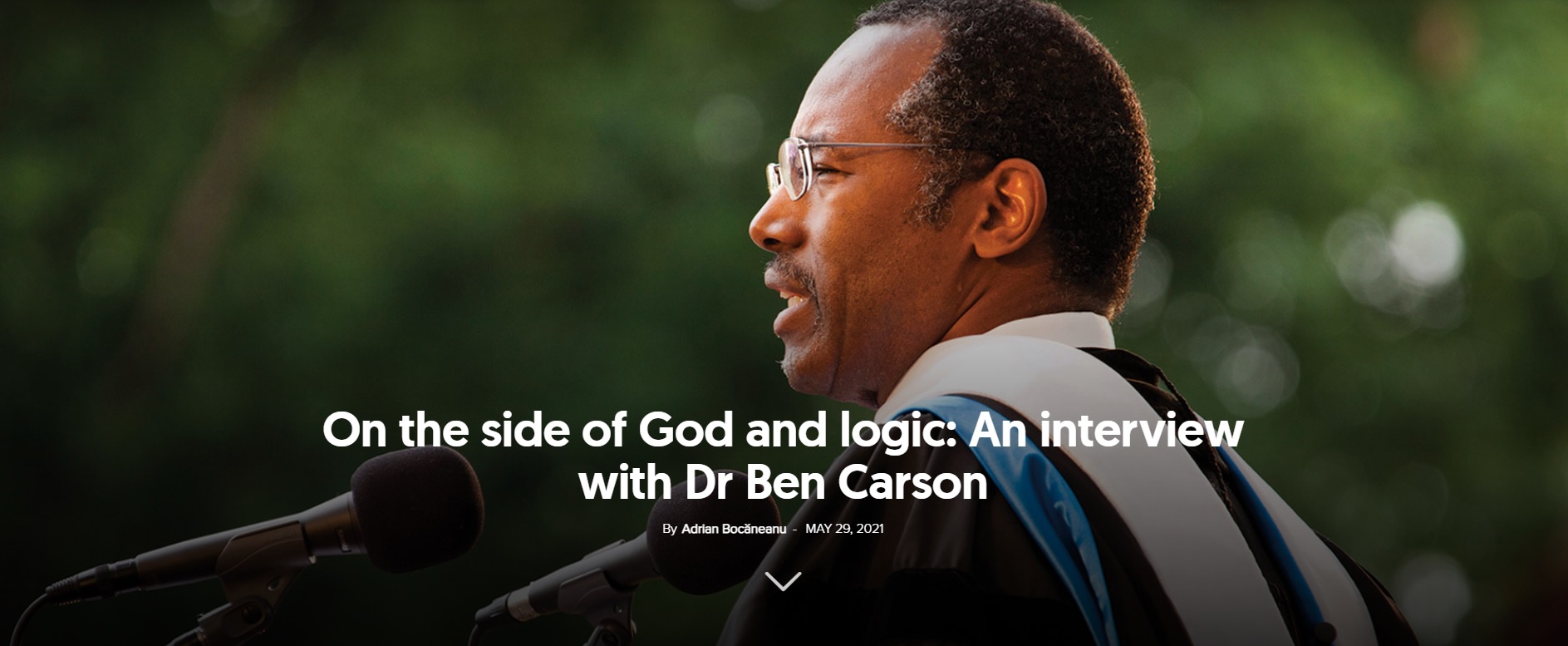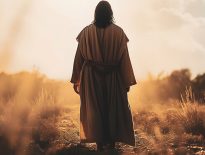Broken blade. Shaking hands. Clouded mind. “I could have killed him.”
The anger he had felt only moments before slid away, its dark waves receding, replaced with an overwhelming sense of shame and regret. Bennie, at 14, had almost killed his best friend. Luckily, the small penknife had snapped on the large belt buckle by chance. He saw his life flash before his eyes and what could have happened if the knife had sunk into living flesh.
Sharp blade. Steady hands. Clear mind. “Your children will live.” His brow unfurls as his intense concentration from the 20-hour operation slips away, replaced by a sense of calm, an overwhelming feeling of satisfaction.
Dr Ben—older, calmer and wiser—has just saved someone’s life, not by luck but by meticulous planning, careful briefing of his staff and patient, and with a God-given gift: his “gifted hands.”
Listening to Dr Benjamin S. Carson now, you would hardly think the softly spoken, eloquent doctor was the class dummy, before becoming a smart-talking, angry adolescent. His gentle voice is soft and soothing. His words seem well considered as he outlines the risks involved in surgery and explains the benefits.
Possibly the world’s most famous brain surgeon, Carson has come a long way from his inner-city Detroit upbringing.
A graduate of Yale Univeristy, at 33 he became director of paediatric neurosurgery at Johns Hopkins Medical Institutions in Baltimore, Maryland, USA. He has had two schools named after him, the Benjamin S. Carson Honors Preparatory Middle School and the Dr Benjamin Carson Academy of Science, located in Milwaukee, Wisconsin, and, in 2004, he was appointed to the US President’s Council on Bioethics. He has now authored thirteen books, established a fund to help disadvantaged children reach their scholastic potential and frequently speaks in schools, churches and other institutions around the world.
He stays grounded through his family and his faith, something many neurosurgeons have trouble doing. In an interview with Kim Lawton of PBS, he describes how many surgeons in specialised fields can develop a “god complex.” “You are going into these incredibly delicate places that control who people are, and you’ve got to have a fair ego to think you can do that,” Carson says.

Carson’s medical career has been a series of ups and downs. He gained a great deal of experience working for a year in Perth, Australia, before finishing his residency. Working at Johns Hopkins, the hospital he had always wanted to work at, he quickly rose to the top of his field, pioneering new techniques and taking risks other doctors are often not willing or able to take.
He is perhaps most famous for his work of separating Siamese twins. In 1987, Carson made medical history by separating the Binder twins, who were joined at the back of the head. Often one or both twins joined in this way would die but, after 22 hours of surgery, the operation was successful.
In 1997, he separated the Banda boys in South Africa. The two boys shared major blood vessels in the back of their heads. It was a risky operation, which he practised on a computerised, 3D virtual workbench beforehand. It took 28 hours and a team of 50 people before it was successfully concluded.
Carson has also perfected, and brought back into usage, a technique called a hemispherectomy, where one hemisphere, or one half, of the brain is completely removed. The technique has saved many children who suffered from severe and frequent seizures. The technique does not work in adults but children’s brains can adapt and, while there is some residual weakness on the side that is taken out, the seizures usually stop and the child’s life is not only saved but greatly improved.
Yet things do not always go perfectly.
In 2003, the 29-year-old Bijani sisters requested to be separated. It was a risky surgery because of the age of the women. There was a 50/50 chance the surgery would be successful and Carson was initially reluctant to operate.
However, the women stated they would rather die than stay joined together. Unfortunately, they died.
Carson is a committed Seventh-day Adventist who attends church regularly.
His mother met the woman who introduced her to the church when she was in hospital for Carson’s birth. Faith was an important pillar of strength for the young single mother and this ensured God has remained an integral part of Carson’s life and his work, since he realised at the age of 14 that God can change lives.
After his knife-wielding outburst, Carson knew he had a problem—what he describes as a “pathological” temper. He locked himself in the bathroom for three hours while reading the Book of Proverbs in the Bible and crying out to God to change his attitude. And God did.
“I was very grateful,” he says, “and it really changed my relationship with God, because before that He’d been my Heavenly Father. Now He became my earthly Father, since I didn’t have one.”
Carson still spends time reading Proverbs every day. There is a certain irony in his love of Proverbs and the effect the book has had on his life.
Written by King Solomon, thought to be the wisest man to ever live, Carson is a great believer in God-given wisdom.
Carson’s middle name is Solomon and the first event that gained him fame was separating Siamese twins. One of Solomon’s first acts as king of Israel was to suggest dividing a baby two women were fighting over.
Carson strongly believes God gives him the talents and wisdom to do what he does. He prays before every surgery and asks the families of his patients to do the same. “My strong belief is that God created human beings and therefore, he knows about every aspect of the human body,” Carson told Lawton in his interview. “So if I want to fix it, I just need to stay in harmony with Him. And how do you stay in harmony with God? You think about godly things and you try to dismiss ungodly things from your mind.”
Carson needed all of this faith in 2002, when he was diagnosed with prostate cancer that looked like it had spread through his body. The outlook was grave but Carson, while shaken, accepted it with dignity. However, it did change his outlook on life. “It gave me real perspective… . I remember the day after the MRI walking around my property and noticing so many things I had never noticed before. The beauty of the leaves on the trees, the blades of grass and the incredible symphonies put on by the birds that I had never listened to before… . I think I am even more empathetic now when people are facing death or when they are facing really horrible things, in terms of having a real sense of how they feel. So I think it was a good thing.”
Carson’s optimistic outlook on life has led him to embrace risk. In his latest book, Take the Risk, he encourages readers to embrace the risk in our lives, so we don’t miss out on reaching our potential. “I think it’s a very wise thing for people to rationally sit down and look at what the risks are, not only on a daily basis but on a weekly basis, on a monthly basis, on a yearly basis, on a lifetime basis, then plan one’s life accordingly,” he says.
Dr Carson has gone from an at-risk adolescent to a risk-taker who saves lives. He has realised surgery is something he is good at, yet he remains in awe of God’s handiwork. “There it is—the human brain, the thing that gives a person a personality, that distinguishes each one of us. But I don’t particularly like cutting the brain. It’s such a beautiful thing, why cut it?” Carson reflects.
“I’m not even sure I like surgery, but I like what it does, I like the effects. I like to be able to give people longevity and quality of life.”
Jarrod Stackelroth is editor of Signs of the Times Australia magazine and lives in Sydney, Australia, with his wife and toddler. A version of this article first appeared on the Signs of the Times Australia/New Zealand website and is republished with permission.




















